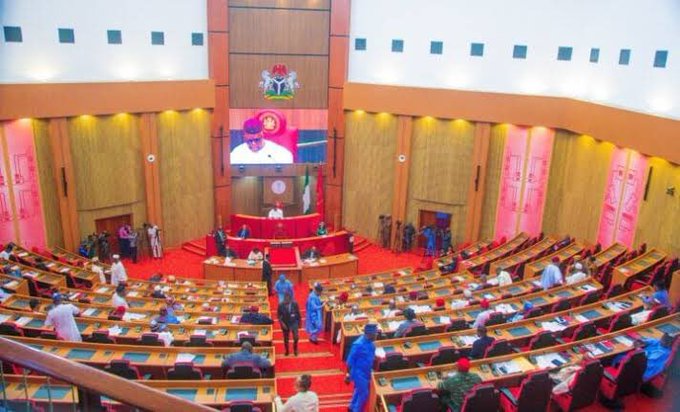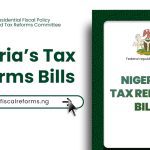Uneasy Calm As Tax Reform Bills Pass Second Reading In Senate

The Senate on Thursday passed President Bola Tinubu’s tax reform bills to the second reading following a heated debate among lawmakers.
The session, which began with a closed-door meeting lasting over an hour, saw the bills referred to the Committee on Finance for further scrutiny, with a mandate to report back within six weeks.
The bills under consideration include the Nigeria Tax Bill 2024, designed to provide a comprehensive fiscal framework for taxation in the country, and the Tax Administration Bill, which seeks to streamline tax laws and minimize disputes.
Others are the Nigeria Revenue Service Establishment Bill, which aims to replace the Federal Inland Revenue Service Act, and the Joint Revenue Board Establishment Bill, proposing the creation of a tax tribunal and ombudsman.
Senate Leader, Opeyemi Bamidele (APC, Ekiti Central), led the debate on the bills, describing them as critical to the overhaul of Nigeria’s tax system.
READ ALSO: 10 Things You Should Know About Controversial Tax Reform Bills
He noted that the reforms are expected to simplify tax collection, reduce the burden on small businesses, and encourage private sector investment.
Bamidele said, “The Nigerian tax reforms bill is a significant move to overhaul the country’s tax system. These bills aim to simplify the tax landscape, reduce the burden on small businesses, and streamline how taxes are collected.
“In broad terms, the four bills seek to ensure uniformity in tax revenue administration in Nigeria in accordance with the provisions of the Constitution, eliminate the incidence of double taxation across the country, deploy taxation as a tool to encourage private sector investments in critical industries and boost individual disposal incomes through targeted tax exemptions as captured in the various Bills.
“In the area of tax exemptions, there is a proposal to exempt those whose salaries are not more than the minimum wage from P.A.YE deductions while small businesses with an annual turnover of N50,000,000 or less are equally exempted from payment of taxes. Similarly, there is a proposed huge reduction in company income tax from the current 30% to 25% by 2026, as part of a deliberate attempt to curtail the incidence of double taxation and multiplicity of taxes and levies.”
The bills were supported by lawmakers like Senators Sani Musa (APC, Niger East), Seriake Dickson (PDP, Bayelsa West), and Tahir Mongunu (APC, Borno North).
However, in an opposing voice, Senator Ali Ndume (APC, Borno South) asked that the bill be stepped down for further consultation.
He said, “Generally, the bill is good, but I have issues with the timing and most importantly issues surrounding derivation and VAT.”
When the Senate President, Godswill Akpabio, put the passing of the bills to a voice vote, the majority of the lawmakers shouted, “Aye.”
Akpabio then hit the gavel in the support of the ayes.
The president’s economic team led by the Chairman, Presidential Committee on Fiscal Policy and Tax Reforms, Taiwo Oyedele; alongside the Chairman, Federal Inland Revenue Tax, Zacchaeus Adedeji; and the Director-General, Budget Office, Tanimu Yakubu; were allowed into the plenary to explain the bills in detail to the lawmakers.

Sodiq Lawal is a passionate and dedicated journalist with a knack for uncovering captivating stories in the bustling metropolis of Osun State and Nigeria at large. He has a versatile reporting style, covering a wide range of topics, from politics , campus, and social issues to arts and culture, seeking impact in all facets of the society.








